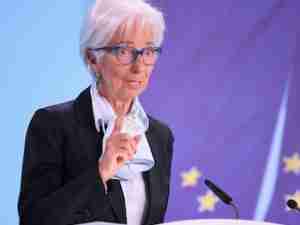Fear of politics has become less of a paralyzing force in Paris boardrooms as the country's highly globalized top firms chase profits abroad and succumb to the rule of increasingly activist shareholders, rather than waning political patronage.
A report for the government by the heads of some of France's biggest companies called on Friday for sweeping changes in attitudes to the global marketplace, blamed by many voters for social and economic malaise, starting with training at school.
Conservative Trade Minister Christine Lagarde welcomed the report and attacked French "paranoia" on globalization -- the opening of frontiers to capital, goods, services and people.
The same people who enjoy the fruits of competition -- low prices and access to a range of goods unheard of 20 years ago -- refuse to accept its consequences, she told a news conference.
"The negative side of this schizophrenia in the ordinary citizen is the haunting fear of outsourcing and restructuring."
While the April 22-May 6 presidential vote heralds a shift to a younger generation of leaders, the campaign script of most candidates reflects static attitudes to capitalism among voters who fear their jobs and benefits being swept away, analysts say.
Although globalization is the third biggest concern for voters, according to a Sofres poll, the issue has produced more negative slogans than serious debate in the duel between conservative Nicolas Sarkozy and Socialist Segolene Royal.
REFORMING RHETORIC
Rating agency Moody's said last week that France was torn between the rhetoric of reform and "a profound propensity towards social conservatism", with the latter likely to win.
The response of French companies varies according to their size and exposure to political influence, which can still be considerable. For many, though, it consists of tearing up the traditional electoral truce and conducting business as usual.
Even Airbus, the troubled Franco-German airplane maker in which the French government has a 15% shareholding, has refused to back down on 10,000 European job cuts including 4,300 in France.
Alcatel Lucent, a French-American telecoms equipment giant, is laying off 1,500 French workers despite political pressure.
Total, the oil company, has shrugged off Socialist calls for a windfall tax and played down its $500-a-second profits.
"Those so-called super-profits are not super profits. They are the minimum we need to face all these challenges," its chief executive Christophe de Margerie said.
Any of these issues might have been taboo in past elections, when firms perfected the art of doing little and saying less.
This time, business leaders say they have little choice if they want to survive, with a tide of global market liquidity ready to devour sickly European companies that fail to compete.
ECONOMIC PROTECTIONISM
The outgoing government of Prime Minister Dominique de Villepin made a lot of noise about "economic protectionism", promising to protect major French firms from foreign takeover.
Sarkozy, the most pro-market of the 12 election candidates, has also increasingly talked up the need for state intervention during the campaign, ignoring the fact that France's room for maneuver is severely limited -- as was proved last year when India's Mittal easily snapped up steelmaker Arcelot.
Business lobby Medef has urged France's political elite to come clean and explain to the voters modern economic realities, but not many top executives are willing to speak openly on this, preferring to work quietly behind the scenes.
"It is better to anticipate globalization and produce an economy of services and accept the rules of the game, though without being naive about protectionism elsewhere," the head of a blue-chip French company said, asking not to b






